Tacoma and Pierce County are hard at work to develop resources for local businesses.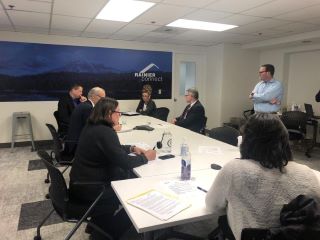 On Monday, March 16, 2020 the Tacoma-Pierce County Chamber of Commerce (COC) and the Economic Development Board (EDB) for Tacoma-Pierce County co-hosted their first COVID-19 Business Response Webinar. These will be hosted every Monday, Wednesday and Friday for the foreseeable future to update community and business members of new information and resources available to local businesses. Questions can be sent to [email protected] with “COVID-19” in the subject line. COVID-19 Business Response Webinar #1The March 16, 2020 call included:
Pierce County Executive Bruce Dammeier started the meeting with commendations for Tacoma and Pierce County community members who have been working together to get through this coronavirus situation by helping each other. Bruce shared that he was out delivering donuts to local permit reviewers as he views it as essential to keep construction projects moving forward to keep as many workers working as possible. Bruce signed an order granting temporary suspension of the noise ordinance in unincorporated Pierce County which is important to allowing trucking fleets into the area for restocking of essential supplies. In a moment of humor, he stated it is his personal mission to keep Happy Donuts open after his purchase of 16 dozen donuts. Mayor Victoria Woodards shared that the City of Tacoma is working closely with Pierce County to preserve as much of our economy as we can in these extraordinary times. She promoted the cities MakeItTacoma.org website with particular note of the COVID19 page which will include regular updates on resources from the City of Tacoma. She closed her comments with this admonition, “The Pierce County way is to do it together.” Director of Pierce County Emergency Management Director Jody Ferguson stated that the business community is the heart of the county and her department is committed to supporting ongoing efforts. She noted that efforts are underway to set up a call center to help businesses navigate the SBA assistance process. Gary Wescott, Pierce County Economic Development Department shared about developing resources in partnership with the SBA. Coronavirus Financial Resources for Your Business:
COVID-19 Resources for Managing Employees
Don't Miss The Next Tacoma-Pierce County COVID-19 Call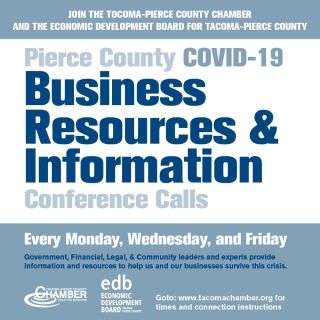 There was an open format for questions and answers which the group addressed. The next COVID-19 conference call / webinar will include updates regarding state and federal resources for your business on Wednesday, March 18th, 10:30am - 12:00pm. US Representative, WA 6th CD, Derik Kilmer, will be on the call to share about new Washington State Department of Commerce and Small Business Administration resources available to support small businesses. Sign on to the webinar, questions can be emailed or messaged in to the group and will be addressed in the order that they are received. While it is still difficult to get a firm grasp on what the extent of the implications of COVID-19 and what duration we can anticipate, it is helpful to have this level of access from those closest to the solutions. Tacoma and Pierce County representatives, along with business and community leaders, are doing their part to collaborate for solutions. These tri-weekly calls are a great way to keep as many as will participate updated with information and local resources. Stay informed and be a part of the solution.
0 Comments
How often do you hear someone make an observation that something is broken in the world around us? It’s easy to share your opinions about fragmented systems with your friends under the guise of, “Just wanting to see a better future.” What separates the naysayers and bystanders from the doers is rather simple, it includes rolling up your sleeves, getting into the mess that you see and becoming a part of the solution. I recently came across a beautiful quote, “Volunteering is the ultimate exercise in democracy. You vote in elections once 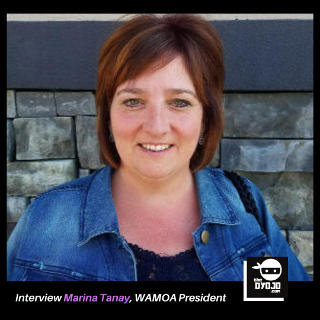 Whether you believe in the same cause, when you meet a volunteer, you are faced with someone who is invested in being a part of the change that they want to see. Change is not easy. It takes years to get into a mess and it typically takes much longer to get out of it. When we connect with others, to collaborate towards the results we want to see, we have a much better shot at conquering the obstacles of improvement. I enjoy hearing the stories of everyday people who are working to develop themselves and are intentional about making a change in the world around them. Marina Tanay currently serves as the Capital Projects and Facilities Manager for the Sumner-Bonney Lake School District. Marina was recently voted in as the President of the Washington Association of Maintenance and Operations Administrators (WAMOA). WAMOA is a professional networking and education association for those working in the realm of facilities and operations in educational settings. We had the opportunity to meet and to interact for this interview. The DYOJO: You have been with Sumner School District for 11 years, correct? Marina Tanay: I actually started with the Sumner School District over 19 years ago. DYOJO: Did you plan to be working in facilities/capital improvement when you started your career? Marina: When I first started, I just wanted to work around my kids' school schedules and have a job that I didn't have to take home with me. My background as a paralegal and a writer made me seek out more and more responsibility as my kids got older. After subbing in M&O, I found my niche. DYOJO: Did you start in part time work? What position was your first? Marina: I did start part time in the child nutrition world with the district as a cashier. It worked for me as I had just recently been diagnosed with cancer and I wanted to have a job that I didn't have to put so much of myself into while I dealt with that. I had previously been writing and doing advertising for a small local newspaper. DYOJO: Wow, cancer. What led to this discovery? Marina: I had a very rare cancer called chondrosarcoma in my right hand. I had a lump in my hand that I questioned being a tumor, but the doctor thought it was a cyst. It grew for about 3 to 4 years in my hand before I insisted on follow up. At that time, my options for treatment were limited. The cancer wasn't one that would respond to chemotherapy and radiation wasn't an option with my hand. So amputation was my only real option. DYOJO: How old were your children when you were given this news? Marina: My kids were both in elementary school when I was diagnosed in 2000. My kids were troupers. I worked with school counselors to make sure they had support on the school side and my husband and I were open and honest with them throughout. DYOJO: Scary stuff. Glad that you and the family made it through. Marina: Getting through it was mostly an emotional battle. It wasn't always easy, but I got through it. DYOJO: You are originally from this area, what has kept you here? Marina: I am a native Washingtonian and have lived all over this state. My husband recently retired from Boeing and it was his employment at Boeing in Auburn that helped keep us in this particular area. DYOJO: Federal, state, county, city and district budgets are always an area of concern for local communities and their schools. What are some of the unique challenges you face working on facilities and capital improvement within the public sector? Marina: Such a true statement! It is challenging on both the general fund and capital budget sides. For the general fund, with McCleary, we've had to go through a couple rounds of budget cuts that have been a challenge for the entire district. It's hard to lose good co-workers to layoffs. From the capital perspective, the hot Northwest construction market has not helped school districts. I miss the days in 2009, 10 and 11, when our projects were routinely bidding below estimate! DYOJO: What have been some of the most rewarding projects you have worked on? Marina: I have been very fortunate to work on projects from two bond initiatives. I'm most proud of the elementary schools we have opened in Tehaleh as I worked closely on the FF&E for both projects:
DYOJO: You are the incoming president for WAMOA, how did you first hear about the organization and when did you become a member? Marina: WAMOA is the Washington Association of Maintenance & Operations Administrators. I remember becoming acquainted with WAMOA in the early 2000s by reading the journals. I began attending region meetings about 7 or 8 years ago. 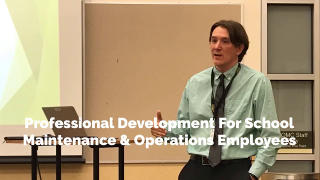 DYOJO: These WAMOA journals in the early 2000s, are those similar to the quarterly publication that WAMOA currently sends out? Marina: Yes, I inherited a binder of early WAMOA journals that I really treasure. DYOJO: For those who are not familiar tells us a bit about WAMOA and why you believe it is of value to those working in education? Marina: WAMOA's core mission is reflected in our new vision statement: Developing successful facility leaders through professional collaboration. Managing school facilities is unique in the industry and our organization is an invaluable resource for its members. As a team, we work to provide up-to-date, useful information to support our members' success in their work and to develop as leaders in our field and our districts. DYOJO: What sparked your interest in being involved in the leadership for WAMOA? What have you learned about working to serve your members as well as combine your voices to position your association to initiate positive change within the larger context? Marina: At the heart of it is my desire to serve. I value my peers and am proud to serve them as they trust me to do so. Whether it has been as a region representative, vice president, or now president, I am dedicated to serving the organization and its members as best I can. As an organization, we are great collaborators and I value the organizations that we are developing collaborative relationships with to broaden our discussions and create positive impact. DYOJO: As the president of a not for profit organization, what is your vision for your term? Marina: Our 2020 conference theme really reflects my vision, "Leading by action and example" which is a concept that I believe in. The best quote I've seen that sums it up says that "Leadership is not a position or title. It is action and example." I believe that. DYOJO: What do you believe are some of the keys to implementing your vision and seeing it executed to the best of your ability? Marina: My goals for this year are to develop a vision statement, which we just recently accomplished with input from members and the board in a collaborative fashion. Next we will conduct a SWOT analysis and use the information generated to develop a new strategic plan so that we can carry out our mission, as reflected in our vision statement. Key to this work is communication and trust. I believe we have good communication in our organization and that the necessary trust relationship is developing as well. 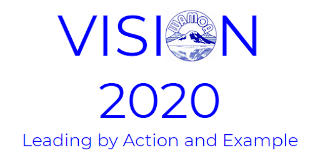 DYOJO: We have discussed what it looks like to promote leadership development for and amongst your peers, what are some of the keys to doing this when your group is spread out? Marina: WAMOA has it down! Our regions focus on local issues and provide good content at our regional monthly meetings. We invest in and work hard to provide the best keynote and leadership seminar speakers that we can find. Our conference committee works hard to put together a strong slate of workshops at our annual conference to meet the needs of all our members. The balance between the regional meetings and the leadership seminar and conference seems to really work for us. DYOJO: For your own personal/professional development what have been some books, events and other resources that encouraged you in 2019, what did you draw from them? Marina: 2019 was a HUGE year for me. I accomplished a lifelong dream and obtained my Bachelor of Science degree in Business Management finally. The course content was so relevant in both my professional and WAMOA life. DYOJO: Congrats on completing your Bachelor’s, I know how good that feels as I recently completed mine as well. What are a few professional development components that you are looking forward to in 2020? Marina: I've also been so motivated and inspired by some of our past leadership speakers. Brad Worthley, Phil Van Hooser and others inspire me constantly with their newsletters and blog posts that I continue to follow. I'm looking forward to hearing Denise Ryan in March. And it might be time for me to start pursuing my project management certification. That may be a new challenge that I set for myself! I discovered WAMOA when we moved to Washington, as I had previously been involved with a similar group in Oregon called OSFMA (Oregon School Facilities Management Association). WAMOA does a great job of providing monthly regional meetings for local networking. There is a Spring Leadership Seminar in beautiful Leavenworth and a Fall Conference in the Valley of Hops, Yakima. If you work in education, facilities, operations, custodial, managing union labor or provide services that would be of value to these professionals, WAMOA will be of value to your development goals in 2020 and beyond. Is it better to be skilled or to be lucky in business?People ask whether it is skill or luck that leads to success. The truth is that it’s a little bit of both. You have to have the skill to put yourself in a position to recognize and seize upon your opportunities. Gerrett Stier brought his podcasting gear to the 3 Kings Environmental Sumner, Washington office to discuss business with Jon Isaacson. Gerrett is the owner of GMS Distribution which makes power distribution tools for property restoration. His main product is a panel that allows contractors to draw additional power immediately from a dryer or range plug so that they can more equipment in the service of a water damage response. The lessons you will learn when starting a business.Gerrett is an electrician by trade and in 2007 he started working with property restoration contractors. Because he is a service minded person, he sought to make a product for his clients that would save them money and time when sourcing the traditional spider box in situations where they needed additional power. The initial units were hand made from electrical parts. In 2009, as the market crashed and Gerrett’s hours were cut in half, he took his product on the road and went door to door to determine if there was a broader demand for this distribution unit that he had been making for local restoration contractors. When you have a good product, a good attitude and refuse to allow tough times to take you out, you can put yourself in a position to create some luck. As Gerrett says, “Being smart enough to be lucky.” Collaboration is key when building a business.As he was building GMS Distribution, he shares some really cool stories of how local vendors collaborated with Gerrett to help him get the process moving forward. Gerrett has a strong commitment to taking care of his customers and was able to attract partners who held similar values. Transitioning from a skilled professional working in a business to an entrepreneur who is building and working on your own business requires intentionality to persevere through the many obstacles. Gerrett Stier started The GMS Podcast in late 2019 and for Episode 5 “Skill & Luck”, he and Jon discuss how GMS Distribution was formed, what 3 Kings does and what The DYOJO is about. What is asbestos abatement?3 Kings Environmental provides services for demolition, abatement, environmental and civil construction. Gerrett asks questions about the asbestos abatement process such as:
Business coaching for entrepreneurs and small business owners.What is The DYOJO? Gerrett asks when did Jon get started writing, speaking and coaching for property restoration professionals? Jon discusses his start in property restoration, being introduced to a mold remediation team and learning the skills of the business. He shares how he had the good fortune of learning from good mentors early on which set him up for a trajectory of career development within the industry. Jon discusses the motivation and concepts for business coaching and leadership development through The DYOJO. Leadership development for business owners.Jon and Gerrett share where they were and what they were doing when the impact of the market crash hit in 2009. Jon had a family owned business that ran dry and Gerrett was working in electrical where his hours were cut in half so he hit the road selling his product. They share their experiences with learning to keep yourself motivated through trials and endure as you pursue your goals.
The discussion touches on topics including entrepreneurship, asbestos, property restoration, building professional relationships, developing intentionally and doing things the right way in business. Jon also announces two books that he is working on, one is a collaborative publication with multiple authors that will be published through the Insurance Nerds network and the second is a solo project based upon his training and development system for service based companies. Follow these local businesses:
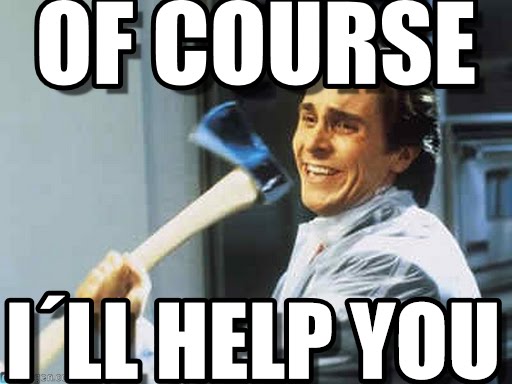 How does an organization create a culture of helpfulness? How does an organization create a culture of helpfulness? Why don’t business leaders, entrepreneurs and employees ask for help? No one wants to appear weak “I don’t need help.” People in a position of leadership have to take a hard look at whether the culture they are building is conducive to facilitating team members feeling comfortable asking for help. Does the leadership team at the corporate office lead by example in asking for help? Do local managers ask their teams for help? When was the last time someone on the team asked for help? If our organization's culture has the bravado where if you can’t hack it then don’t let the door hit you on the backside, we will not hear anyone asking for help. This environment is expressed in much more subtle ways as well, wherein the organization does not exemplify how to ask for help or create avenues for team members to reach out without repercussions (real or perceived). Five questions that can help us build a culture that is conducive to collaboration:
No one wants to be overrun “I need help, but…” Perhaps people are asking for help but they are not getting a positive response. We have to be mindful as well as intentional to create a culture where asking for help does not lead to exclusion or imperialism. Being mindful and intentional with how we address a request for help starts something as simple as paying attention, management expert Tom Peters reminds us to ask the question, “Do I make eye contact 100 percent of the time?” Being positive and approachable, as mentioned above, could start with the act of putting our phones down, making eye contact and giving 100 percent of our attention to whomever we are interacting with. Imperialism is the expansion of power through brute force or diplomacy. In the work place there are hostile takeovers of another’s position, the scenario where someone is asked for help or told that they need help and then they are steamrolled by the one providing assistance. “I was just trying to help,” the imperialist will say, and they may believe they have the best intentions but their process does not lead to independence for the workmate that they are “helping”. Exclusion is much more subtle as is imperialism by diplomacy. On paper or to the outside world, exclusion may appear like assistance but it nets the same result as a takeover it is just done with a bit more savvy. When the person asking for help is subtly pushed out of their role or responsibility then the process of exclusion has begun. Many well-intentioned leaders are guilty of taking over the kitchen rather than teaching their employees how to bake bread. Assistance should lead to independence rather than dependence or takeover. Many organizations create internal competitiveness which may build towards growth goals but if not managed with the correct environment could suffer greatly in lack of internal collaboration. Working together to make the whole team stronger allows us to compete and collaborate. We should remember to listen before we speak and listen longer than we think we should. Listening unlocks doors and removes bricks in those walls that have created barriers to interaction. If employees perceive leadership and the culture as one that is not open to being helpful then they will not engage in seeking assistance. No one ever taught us how to ask for help “I don’t know who or how to ask for help.” We cannot take it for granted that everyone knows how to ask for help or to whom they would go for help. This could be a significant gap both in the onboarding process as well as the ongoing development of the team – who can help you when you need it. There may be people asking for help they just may not be clear about communicating what their needs are. If people approach the boss but they are always busy or appear too busy, opportunities may be missed. If people have reached out but they were shot down, ignored or even scorned, opportunities are definitely being missed. Raising our emotional intelligence (EQ) allows us to understand that perception is a tricky thing and it often overrules reality so it is important that those in a position of leadership are intentional about interacting with their teams in positive ways to open up channels of communication. In a training outline from McKinsey & Company on how to take charge without taking over, they recommend that new leaders or teams in a process of change should, “Keep all messages explicitly positive and defer all penalties until it is clear that positive behavior will not emerge without them.” If you are trying to create a culture of collaboration - start with listening. Start listening with purpose with a little help from Lola. If you are in need of some help and mentorship - own your mistakes and consult with a trusted source. IZ Ventures - more than business coaching and consulting, we help you connect, collaborate and conquer.
|
AuthorThoughts on personal and professional development. Jon Isaacson, The Intentional Restorer, is a contractor, author, and host of The DYOJO Podcast. The goal of The DYOJO is to help growth-minded restoration professionals shorten their DANG learning curve for personal and professional development. You can watch The DYOJO Podcast on YouTube on Thursdays or listen on your favorite podcast platform.
Archives
March 2023
Categories
All
<script type="text/javascript" src="//downloads.mailchimp.com/js/signup-forms/popup/unique-methods/embed.js" data-dojo-config="usePlainJson: true, isDebug: false"></script><script type="text/javascript">window.dojoRequire(["mojo/signup-forms/Loader"], function(L) { L.start({"baseUrl":"mc.us5.list-manage.com","uuid":"b9016446bd3c6a9f0bd835d4e","lid":"83282ffb9e","uniqueMethods":true}) })</script>
|
Jon Isaacson |
Connect. Collaborate. Conquer.
© COPYRIGHT 2015. ALL RIGHTS RESERVED.
|

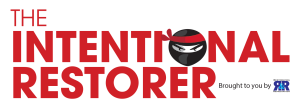
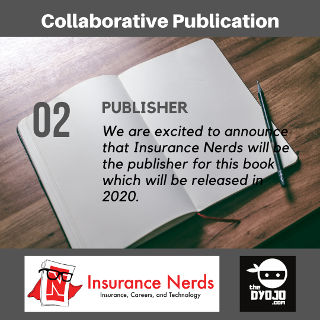
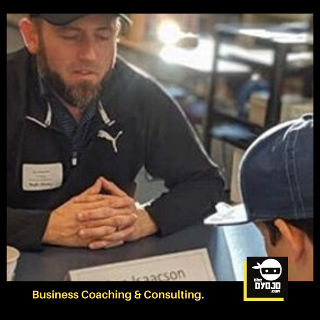


 RSS Feed
RSS Feed